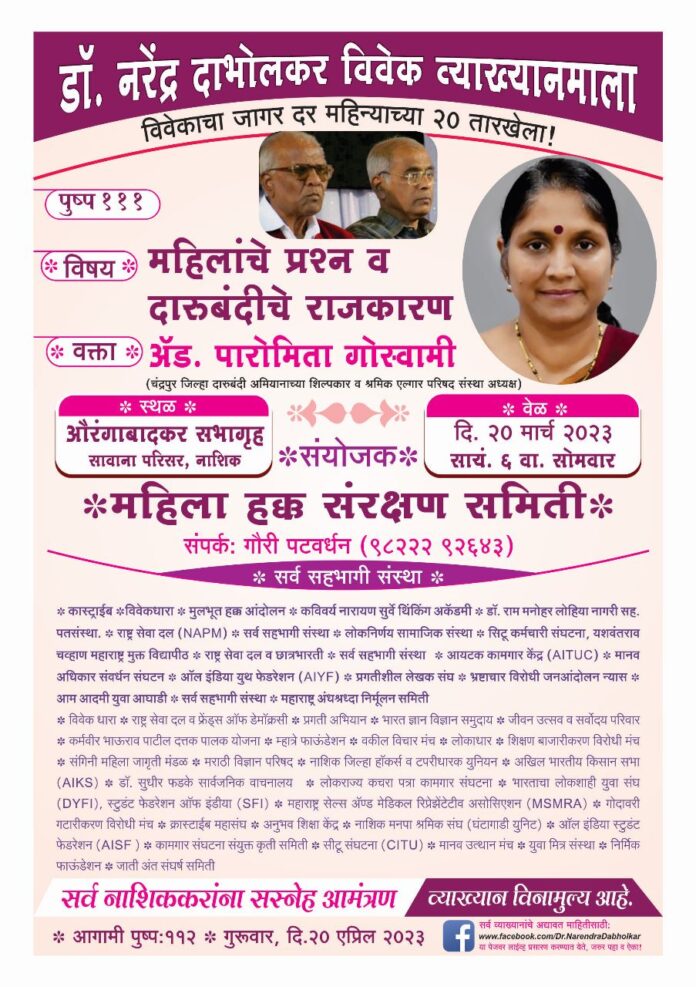
Dr. Narendra Dabholkar’s Spirit Thrives in Nashik
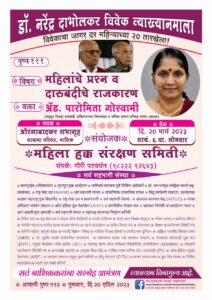
Dr. Narendra Dabholkar was murdered on August 20, 2013 but the social organisations and activists of Nashik have kept his spirit alive to this day. On the 20th of every month more than forty such organisations come together through a programme called Dr. Narendra Dabholkar Vivek Vyakhanmala. It is a unique programme in many ways. Firstly, the programme is not conducted by any one single organisation. Every month one organisation takes the responsibility of inviting and hosting a speaker. Secondly, the programme has continued without a break for several years. Even during the Covid lockdown it was conducted on-line. Thirdly, the programme is not only a way of showing commitment to the progressive rationalist values espoused by the Doctor, but it is also a protest against the failure of successive governments to punish the fanatic organisations which masterminded the murder.
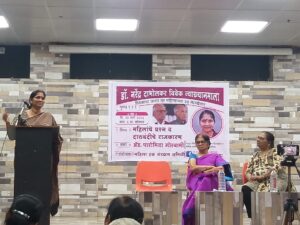
On March 20, I was fortunate to be invited as the speaker for the 111st presentation by Mahila Hakka Sanrakshan Samity. I was given the topic – Mahilanche Prashna va Darubandiche Rajkaran (Women’s Issues and the Politics of Prohibition). The programme was held at Aurangabadkar Hall and well-attended by many activists, social workers and progressive thinkers of the city. The introduction to the Vyakhanmala was given by Shyamala Chavan and it was chaired by the indomitable Hematai Patwardhan, President Mahila Hakka Sanrakshan Samity. Gauri Patwardhan, the secretary of the organisation, presented the work of the Samity at the beginning of the programme. In my speech I spoke about how the work of Shramik Elgar revealed the the various layers of politics involved in the issue of prohibition. The entire hall clapped when they heard how strongly the women of Chandrapur who worked at the grassroots had faced severe violence and yet went ahead with the demand of prohibition. The presentation was followed by a very lively question and answer session.
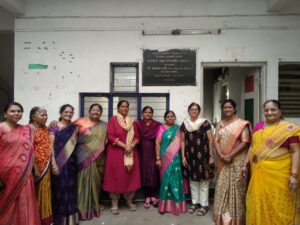
My first visit to Nashik is unforgettable because of the wonderful women leaders I met there in Mahila Hakka Sanrakshan Samity as well as in the experimental school Anand Niketan. Mahila Hakka Sanrakshan Samity was started in 1982 by Kusumtai Patwardhan and is today headed by her daughter-in-law Hema Patwardhan. I visited the two family counselling centres run by the organisation and met the team of counsellors in both places. The two things that impressed me particularly were – firstly, the counsellors were not mere employees but trustees of the organisation. This is very unusual in the NGO world where the trustees are usually upper class, upper caste, educated people and the karyakartas mostly from the marginalised sections are employees of the trust. Secondly, Gauri told me that the office bearers change every three years. This sort of arrangement is an exception where all around we see trustees indulging in all kinds of underhand tactics and endless litigation against each other in a bid to hold on to office.
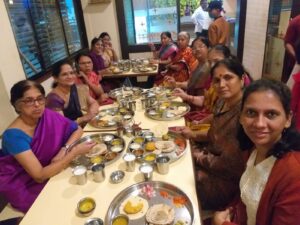
The spirit of Dr. Dabholkar lives on in the everyday work that activists do here – for instance in Anand Niketan school where I was invited to on March 21. Started in 1998 Anand Niketan lays emphasis that beyond book learning students should be socially aware, humane, sensitive and learn to think for themselves – the exact values for which Dr. Dabholkar laid down his life. One of the founders Vinodini Kalgi explained how she and a group of friends were convinced that the traditional schooling system was doing more harm than good to the children and therefore she gave up her job as a maths lecturer to set up Anand Niketan.
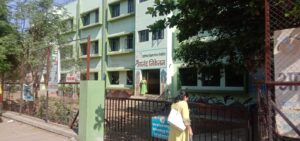
Started in a small way, today the school has an impressive structure. The founders consciously decided not to take government grants as it did not want any interference in the content and methods of teaching. The medium of instruction is Marathi although other languages are also taught, the fees are kept at a minimum so that children from all strata can join. I was surprised when Vinodini told me that most of the teachers (there are 35 staff members, all except two are women) work only for a travel allowance. I could not believe that there could be teachers in today’s world who would give up their salaries to keep the fees affordable.
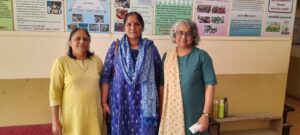
I shared my experiences with the children of Classes VIII and IX through the interview conducted by Deepa Palshikar, one of the teachers. The children were attentive and full of curiosity and interesting questions.
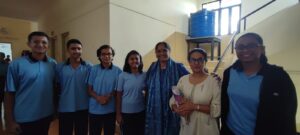
Later over tea I learned that the school doesn’t have a principal – the responsibilities of the principal is taken up by all the teachers on a rotation basis. ‘How do you teach the caste system to the children,’ I asked Deepa remembering how much I had struggled to explain caste-based discrimination to my own daughter. She gave a fascinating insight into the slow yet steady pedagogy that the school follows, making sure that the children understand the difficult concepts.
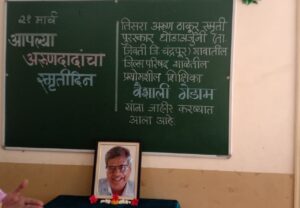
The school was observing the death anniversary of one of its founders – Ashok Thakur. They had announced a special prize in his memory awarded to Vaishali Gedam who teaches in Zilla Parishad School, Dhond Arjuni, Jivti Taluka . I was surprised that teachers from Nashik had visited Dhonda Arjuni, a remote village in Chandrapur district and selected the teacher for felicitation. Vinodini told me that there are five such experimental schools in Maharashtra including Anand Niketan in Wardha and they work very closely with each other.
While leaving I saw the tiny tots in nursery having their lunch. The kids had spent the morning crushing roasted peanuts with mortar and pestles and now the teacher had made them peanut laddus. Anand Niketan indeed is a home of joy.
- Paromita Goswami


